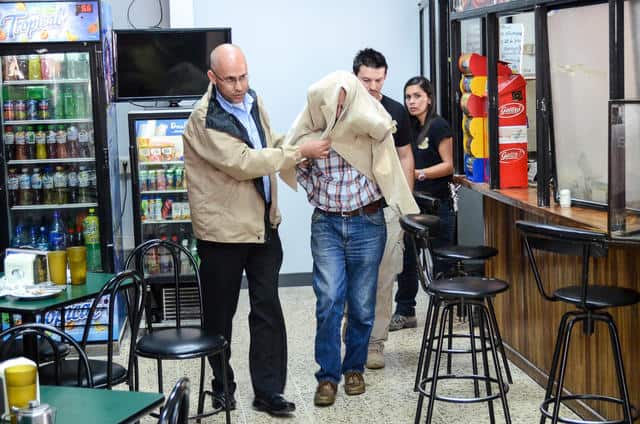Update June 18, 6:24 p.m.: Prosecutor’s Office spokeswoman Tatiana Vargas said that the preliminary hearing that was originally supposed to take place Thursday was rescheduled for July 20.
Original article continues here:
A preliminary hearing Thursday could send a ring of alleged kidney traffickers to trial two years after their arrest, according to the Costa Rican Prosecutor’s Office.
The prosecutor will ask the Criminal Court of San José to set a trial date for a 2013 organ trafficking case that allegedly spanned from Tel Aviv to Cartago as Costa Ricans were paid upwards of $20,000 each to sell their kidneys to Israeli buyers.
If the trial moves forward and the defendants are found guilty, they could face 10 years in prison, according to an email from Tatiana Vargas, spokeswoman for the Prosecutor’s Office. Additional preventive measures could also be requested by the prosecutor.
Four doctors, including the head of nephrology at the public hospital Calderón Guardia in San José, and a Greek pizza owner were arrested between June and October 2013 on allegations of human trafficking with intent to illicitly extract organs. The Prosecutor’s Office concluded its investigation in 2014.
A police officer also was arrested during the investigation but was not charged.
The alleged organ trafficking ring includes Francisco José Mora Palma, the former head of nephrology at Calerdón Guardia Hospital; urologist Massimiliano Anunzia Mauro Stamati; peripheral vascular doctor Victor Hugo Monge Monge; urologist Fabian Fonseca Guzmán; and Dimosthenis Katsigiannis Karkasi, the owner of the Akropolis pizzeria.
The Prosecutor’s Office alleged that Mora Palma preyed on economically distressed people to convince them to sell their organs. He also allegedly used public hospital resources to operate his illicit organ extraction operation.
None of the defendants are currently in jail but have been ordered not to leave the country, and not contact victims or witnesses in the case. Mora Palma, who allegedly masterminded the organ trafficking ring, was under house arrest and ordered to pay ₡100 million — roughly $200,000 — in bail, according to Vargas.
Selling an organ is illegal in Costa Rica. Living organ donations are legal but only without monetary or other compensation, nor under duress. The Prosecutor’s Office said that the traffic of persons for the purpose of organ harvesting is punishable in Costa Rica with up to 10 years in prison under Article 172 of the Penal Code.






